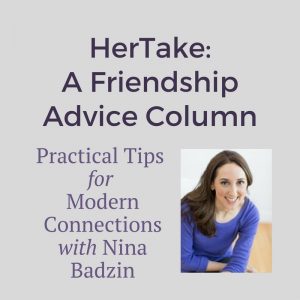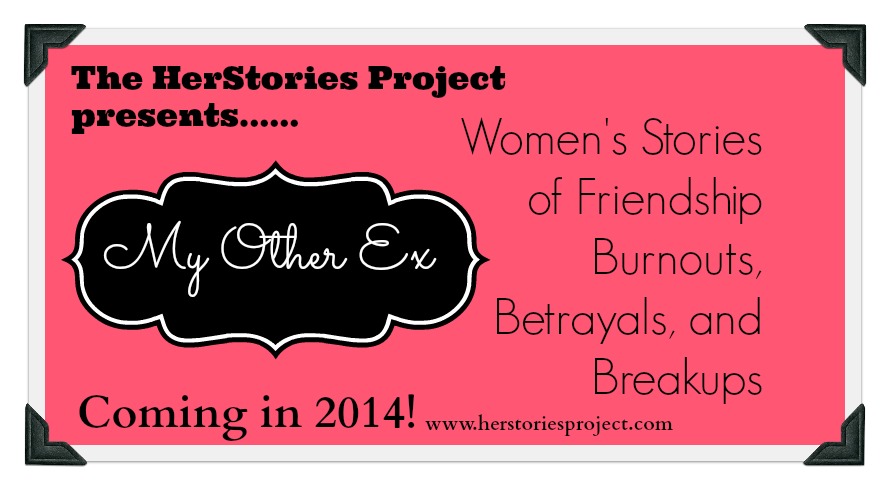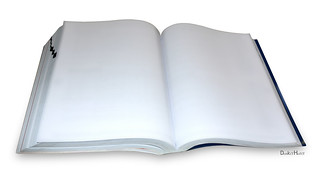How To Tell When a Friendship Is Over
When should you end a deteriorating friendship? How do you know when a friendship is over?
In a romantic relationship, the signs are clearer: you stop going on dates, you move out, you stop hanging out. There’s a clear “cultural script” for how a romantic breakup goes. In friendship, the signs can be much more ambiguous, especially since it’s perfectly normal for friends to fade in and out of our lives at different points, particularly during major life transitions.
Friendships come to a close for a variety of reasons. You grow apart. You change priorities. You move. You have kids. You get or lose a job. A loss of some sort — a divorce, death — rocks you to your core, and your friend either gets it or doesn’t. Sometimes it’s impossible to tell just what the reason is.
How can you tell when a friendship is over, or should end?
There’s no one definitive sign, but here are some clues:
1. The relationship is unbalanced.
You realize that your relationship is one-sided. You — or your friend — is always the one to initiate contact or make plans. If you don’t take the initiative, then you just won’t hear from her. You feel like she’s making excuses to get out of spending time together.
This is one of the most common dilemmas that Nina Badzin, our friendship advice columnist, hears about. In previous columns, for example, she’s advised a reader who feels like her friend only gets in touch with her when the friend’s “real” friends are busy; a reader (“Needy Nancy”) whose friend suddenly seems cold and is pulling away; and a reader whose friend consistently cancels plans at the last minute.
Many of us are also bad at telling who are friends actually are. While we assume that our friendships are reciprocal, research shows that in actuality half of friendships are one-sided.
2. Conversation feels too hard.
It feels stressful to keep talking, beyond the usual updates of each other’s lives. It doesn’t feel natural anymore. There’s no chemistry. You might end up sniping at each other or there may be lots of awkward silence.
3. You don’t have fun together.
You don’t seem to have much in common anymore. It’s okay for friends to have different interests, but it could also be a sign that spending time together is too much work for both of you.
4. After spending time together, you find yourself annoyed and drained.
After being together, you feel emotionally depleted, instead of supported and recharged.
5. It’s only through social media that you often find out what’s going on in her life.
You no longer share the “big” or small daily life happenings anymore. She leaves out important information about what’s going on in her life even when you do talk. Or, alternatively, your friend never interacts with your posts on social media.
6. You don’t act like yourself when you’re together.
After being together, you reflect and realize that you don’t like the version of yourself that emerges when you hang out. She brings out the worst version of you.
7. You feel like you’re “suffocating” in the relationship.
You feel like you’ve given so much of yourself, but it’s never enough. Or she may be controlling or needy or possessive. You feel like she needs you for everything, including validation. Or all of the above.
In one of Nina’s previous columns, she advised a reader with a needy and lonely friend. The friend wrote: “Since she has no one else to talk to, she uses me to vent. I mostly feel awful after these talks. Yet I realize she is alone in a new city and has no other support…She knocks on my door or phones almost every day. I feel harassed and have spoken to her about my need for better boundaries, but she does not get it. I find myself turning off all my lights so she will not know I am home and I don’t answer my phone or go to the door.” This friend knew she wanted out of the relationship, but wasn’t sure how to do it.
8. In your gut, you feel that the friendship is a “toxic” relationship in your life.
The lines between healthy friendships and “toxic friendships” are sometimes fuzzy. A toxic friend doesn’t have to be someone who is always mean and terrible; she doesn’t have to be a “bad” person.
According to Dr. Irene Levine, author of Best Friends Forever: Surviving a Breakup With Your Best Friend, a toxic friendship is “one that is consistently, or more often than not, unequal, non-reciprocal, demanding, clingy, stress-inducing, demeaning, and/or unsupportive.”
As Nina Badzin points out, sometimes the question of when to end a question boils down to this:
“When there’s more frustration than joy. Life is too short.”
About your friendship, ask yourself, Nina advises, “Do the pluses outweigh the minuses?”
It is hard to let go. It’s hard to admit what you perceive to be a failure. You try to ignore the ways that this friendship no longer works or feels right to you. You make excuses for your friend’s (or your own) behavior.
The bottom line: When a friendship is more of a drain than an asset, it’s a good time to step back and reflect about whether your life would be better without this person. No friendship is perfect, but it might be time to cut the cord if you think a friendship can’t be fixed.
- For more about what to do when you have decided a friendship is over, check out this post: “The Grownup Friendship Break: How To Break Up With a Friend, Like An Adult”
What have been the signs for you that a friendship is over?
Read more about how friendships end — from both sides — in our essay collection, My Other Ex: Women’s True Stories of Leaving and Losing Friends.












